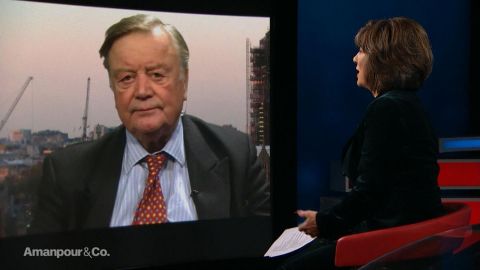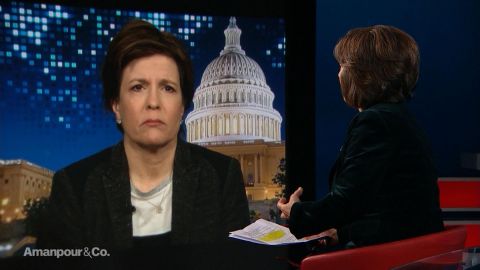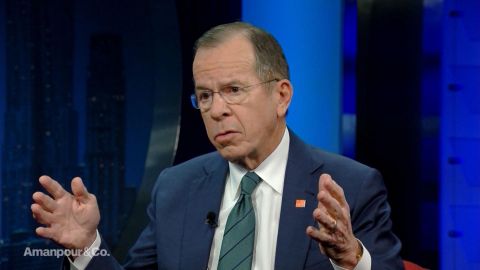Read Transcript EXPAND
CHRISTIANE AMANPOUR: Let me read you Facebook’s statement, because it is interesting. “Our policies have long prohibited hateful treatment of people based on characteristics, such as race, ethnicity or religion, and that has always included White supremacy. Over the past three months, our conversations with members of civil society and academics have confirmed that White nationalism and separatism cannot be meaningfully separated from White supremacy and organized hate groups.” I mean, how do you read that? Because — I mean, are they saying what we – – you know, we took down some stuff but now we’re only already conflating it altogether and taking it all down? I mean, it’s incremental —
KARA SWISHER, RECODE CO-FOUNDER: Right.
AMANPOUR: — everything that they do.
SWISHER: Right.
AMANPOUR: And I usually after massive tragedies and huge pushback.
SWISHER: Well, you know, the thing is, I did an interview with Mark Zuckerberg last year where we had this argument about Holocaust deniers, if you remember, and he said, “They don’t mean to lie,” and I was like, “They mean to lie,” and it goes back and forth. And so, it’s a really difficult thing. They’re running a platform that is so complex from a technological point of view but is even a quantumly more complex as a social thing. Like it’s not just social media, it’s affective all of social, whether it’s in Myanmar or the Philippines or here in this country or in New Zealand, everything that goes across this platform has an impact in real life. And I think that’s something that’s been — these are not malevolent people who run Facebook, these are not people who do not understand the gravity of the situation, it’s just that they don’t want to be responsible for what the tools that they have built results in. And now, they have to.
AMANPOUR: Well, now they have to after, you know, New Zealand. And you’ve just mentioned Myanmar and India and the Philippines. So, let me fill in those gaps and we can talk about that. So, I mean regarding Myanmar, social platforms basically have been the steering wheel to violence in Myanmar and it is specifically on Facebook that the military have spread their anti-Muslim, anti- Rohingya hatred and their rhetoric.
SWISHER: Right.
AMANPOUR: In India, we know that these WhatsApp sort of conspiracies about what certain villages are doing in villages lead to real life lynchings and injuries. And we know, as you mentioned, in the Philippines, that the, you know, nationalist, populist, some would say, you know, disruptor, Duterte, he has used —
SWISHER: Right.
AMANPOUR: — it for his drug war, for his attacks on his opponents and just to get elected, because two-thirds of the Filipino population use Facebook and the other one-third doesn’t even have the internet. So, these are —
SWISHER: Larger than that, it’s a larger number actually —
AMANPOUR: Go on then, tell me.
SWISHER: — among many people. In the Philippines, it’s even larger. I just did a big column in “The New York Times” and also had done interviews with Maria Ressa who is a column — who runs a site there called “Rappler,” and she’s under attack. She’s been arrested several times under very trumped up charges essentially. But she’s been a big critic of Duterte and that’s — that Facebook has been used to attack her.
About This Episode EXPAND
No one knows what the next day will bring in British politics, but Kenneth Clarke, a conservative MP, joins the program to help make sense of it.
Kara Swisher on Facebook’s announcement this week that it would ban all “praise, support and representation of white nationalism and separatism” on Facebook & Instagram.
Mike Mullen joins Walter for a discussion on political courage and morality.
LEARN MORE


